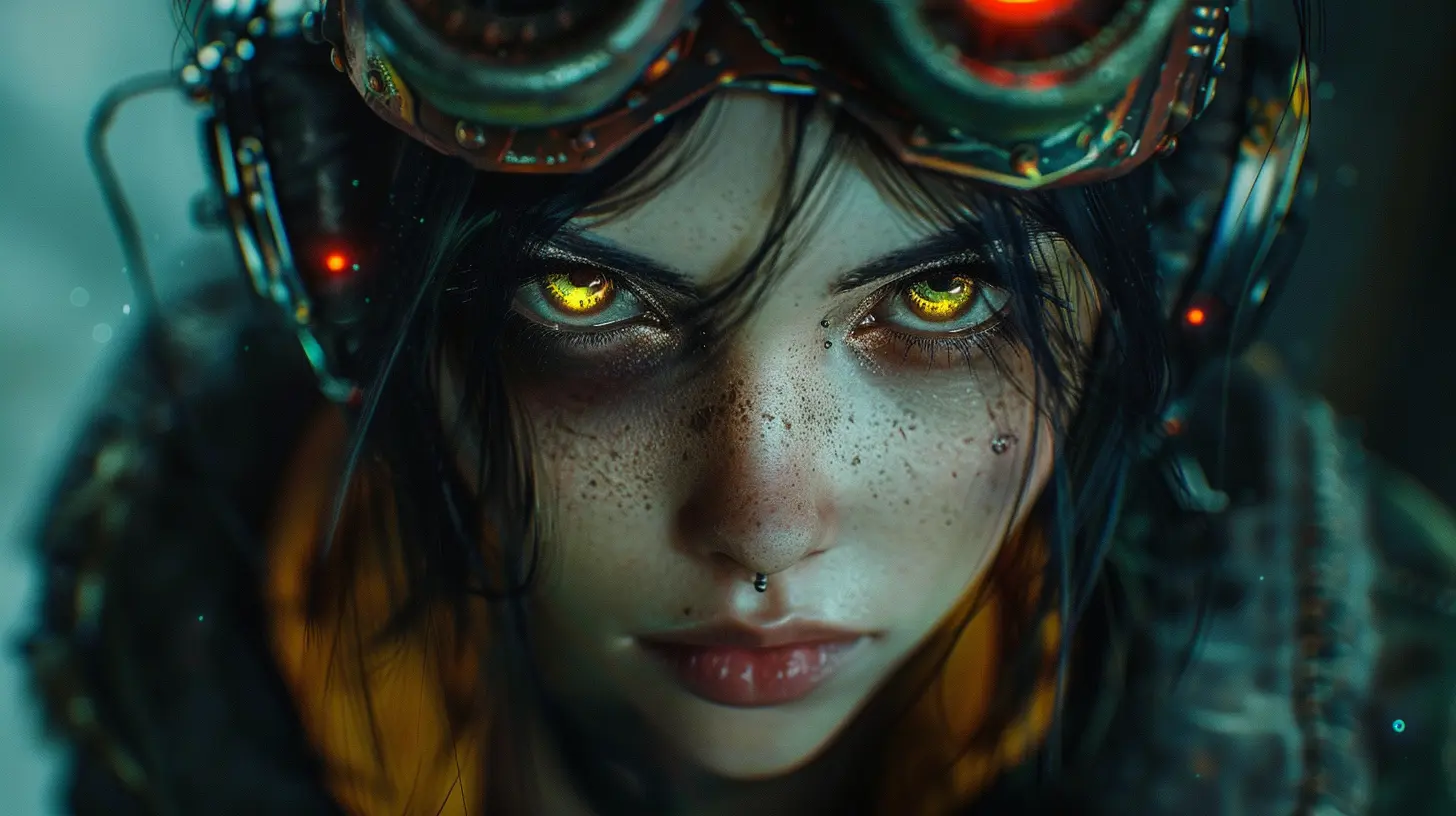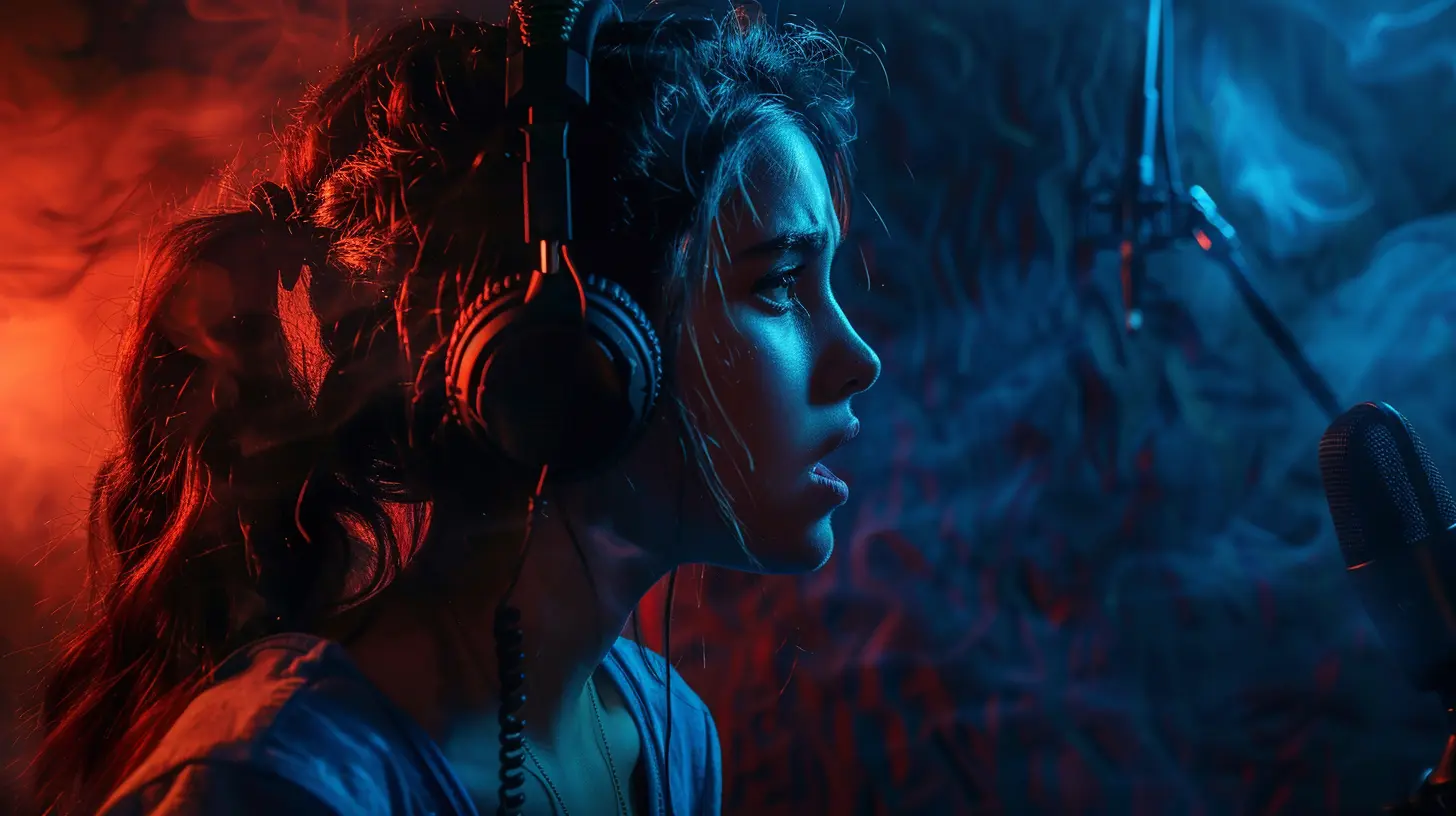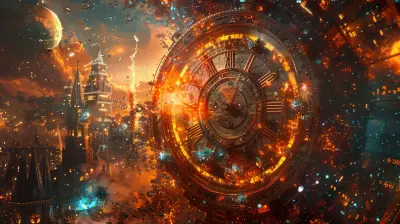Voice Acting and Its Role in Game Storytelling
23 October 2025
Imagine diving into a video game—epic soundtrack in the background, stunning visuals on the screen—and then a lifeless, monotone voice chimes in. Kinda kills the vibe, right? That’s where voice acting steps in and completely flips the script.
Voice acting is no longer just “reading lines.” It’s about breathing life into characters, adding emotional depth, and making virtual worlds feel as real as our own. In today’s gaming era, storytelling has taken a front-row seat, and voice acting is one of its most powerful co-pilots.
So grab your headset and let’s break down the magic behind the voices that make our favorite stories unforgettable.
🎮 Why Voice Acting Matters in Games
Okay, think of your favorite game story. Got it? Now imagine that same story but with robotic, emotionless voices or—worse—no voice acting at all. Tough to care about the drama, right?Voice acting elevates storytelling in games for a couple of big reasons:
- It adds human emotion – Tone can say more than dialogue.
- It drives immersion – You feel part of the world.
- It strengthens character development – You understand who they are through how they sound.
Basically, voice acting is the secret sauce that makes you feel what the characters are feeling.
🎭 From Pixels to People: How Voice Acting Shapes Character
Characters in video games aren’t just painted pixels – they’re personalities. But let's be honest, no matter how fancy the graphics are or how clever the script is, without the right voice, a character can fall flat.🎤 Emotion Is Everything
Ever got goosebumps from a game? That emotional punch usually comes from a combo of great writing and stellar voice delivery.A well-delivered line can make you laugh, cry, or rage—sometimes all in the same cutscene. Just think of moments like:
- Arthur Morgan’s heart-wrenching dialogues in Red Dead Redemption 2
- Ellie’s fear-tinged voice in The Last of Us
- The Joker’s insane rants in the Batman: Arkham series
These performances stick with us because they’re real. They sound like people going through something.
😎 Personality Through Voice
Voice acting gives a character more than just a mouth—it gives them attitude, quirks, and style. It’s like how someone’s voice tells you if they’re confident, scared, sarcastic, or lying. In games, this lets you connect—or clash—with characters in a much deeper way.
📚 Building Immersive Narratives with Voice
Let’s talk about immersion. Great storytelling pulls you in, but great voice acting keeps you there.🧭 Sense of Place and Time
Accents, dialects, and even slang can tell us a lot about the game world—where it's set, who lives there, and what the culture is like.For instance:
- A cocky pilot with a Southern drawl in a space game? That's world-building.
- A medieval knight with a regal tone? That’s setting the scene.
Voice actors can help paint the world with sound, making storytelling more believable and immersive.
⏰ Pacing and Timing
Ever noticed how a rushed delivery can throw off an emotional scene? Timing is everything.Voice actors have to hit emotional beats just right—whether it’s a split-second scream in a boss fight or a slow, tear-soaked monologue after a tragedy. The pacing of their delivery can elevate a scene from good to unforgettable.
🕹️ Interactive Storytelling: When Voice Matters Most
Unlike movies or TV, games are interactive. Players choose dialogue, make decisions, and even shape the story. This creates some unique challenges—and opportunities—for voice actors.😮 Multiple Outcomes, Multiple Emotions
In branching narrative games like Mass Effect or Detroit: Become Human, characters may go through wildly different emotional journeys depending on your choices. So voice actors have to record lots of variations—every mood, every vibe.It’s like recording 20 different versions of the same breakup call. Painful? Yep. Impressive? Absolutely.
🧬 Consistency Matters
Even if the story branches out, a character’s essence has to stay the same. Voice actors have to keep a consistent personality while adapting to different situations. That takes skill, range, and lots of rehearsal.🧑🎤 The Voice Behind the Avatar: The Star Power of Voice Actors
We're starting to see voice actors become stars in their own right, and for good reason. These folks bring digital characters to life in ways that feel deeply personal.🌟 Recognizable Voices
Some voice actors are basically celebrities in the gaming world:- Troy Baker (Joel in The Last of Us, Booker in Bioshock Infinite)
- Ashley Johnson (Ellie in The Last of Us)
- Jennifer Hale (Commander Shepard – Female in Mass Effect)
These actors bring gravitas and consistency to franchises, making us emotionally invested not just in the characters, but in the stories they tell.
💬 Performance Capture: Voice + Motion
Voice acting has evolved. Today, many actors also do motion capture—meaning they’re acting with both their bodies and voices in a studio. This adds an extra layer of realism and emotion to characters.It’s like theater, film, and voiceover all wrapped into one high-tech burrito.
🧠 The Psychology of Voice: Why We Connect
Let’s geek out for a second. Did you know that your brain reacts differently to human voices than to text? When you hear emotion in a voice, areas in your brain tied to empathy light up.That’s why voiced dialogue hits harder than reading subtitles or text boxes. It feels human—even in a fantasy world filled with dragons or aliens.
And that’s what voice acting in games really does: it bridges the gap between fiction and reality, pulling on our emotions and making us care.
🧪 When Bad Voice Acting Breaks the Spell
Now, let’s flip the coin. We’ve all experienced bad voice acting—and it's like a glitch in the Matrix.😬 The Cringe Factor
We’re talking awkward pauses, over-the-top accents, or just plain wooden delivery. It instantly yanks you out of the game and makes you roll your eyes.Bad voice acting can:
- Kill emotional moments
- Make serious scenes laughable
- Alienate the player
The fix? Good casting, smart direction, and giving voice actors the freedom to be, well, actors.
🧰 Behind the Scenes: How Great Voice Acting Happens
So, how do developers get those Oscar-worthy performances in their games?🎧 Casting Right
Getting the right actor is step one. Developers look for voices that match character traits—not just sound, but personality, energy, and emotional range.🎬 Direction and Context
Voice actors need context. Blank scripts don’t cut it. Knowing what’s happening in the scene, what the character feels, and how the line fits into the world helps actors deliver gold.🔄 Studio Time and Revisions
It’s not a one-and-done deal. Voice sessions often include:- Multiple takes
- Director feedback
- Revisions after testing scenes
It’s a process—and a pretty intense one at that.
📈 The Future of Voice Acting in Gaming
Gaming is evolving fast, and so is voice acting. What’s next?🎙️ AI and Synthetic Voices?
Yup, some games are toying with AI-generated voices. Cool tech, but it still lacks that human touch. For now, emotional range still belongs to humans.🎭 Bigger Budgets, Bigger Talent
As gaming becomes more mainstream, Hollywood celebs are jumping in. From Keanu Reeves in Cyberpunk 2077 to Norman Reedus in Death Stranding, A-list names are lending their voices and star power.🌍 More Authentic Voices
Representation matters. We’re seeing more games cast actors who match the character’s culture, background, and identity. More authentic voices = better, richer stories. Period.🧩 Wrapping It All Up
Voice acting isn’t just a cherry on top—it's core to modern game storytelling. From fleshing out characters to creating emotional moments, voice performances are often what make a good game great.Whether it’s shouting commands in a firefight, whispering secrets in a plot twist, or mourning a lost comrade, the voice behind the words makes all the difference.
Great voice acting doesn’t just talk to us—it speaks directly to our hearts.
all images in this post were generated using AI tools
Category:
Game NarrativesAuthor:

Greyson McVeigh
Discussion
rate this article
1 comments
Nyari Mercado
Voice acting brings characters to life, making us feel their triumphs and struggles. It’s like magic that enhances every game story!
November 7, 2025 at 5:34 AM

Greyson McVeigh
Absolutely! Voice acting truly transforms characters, adding depth and emotion that elevate the gaming experience. It’s an essential element of storytelling that resonates with players.


